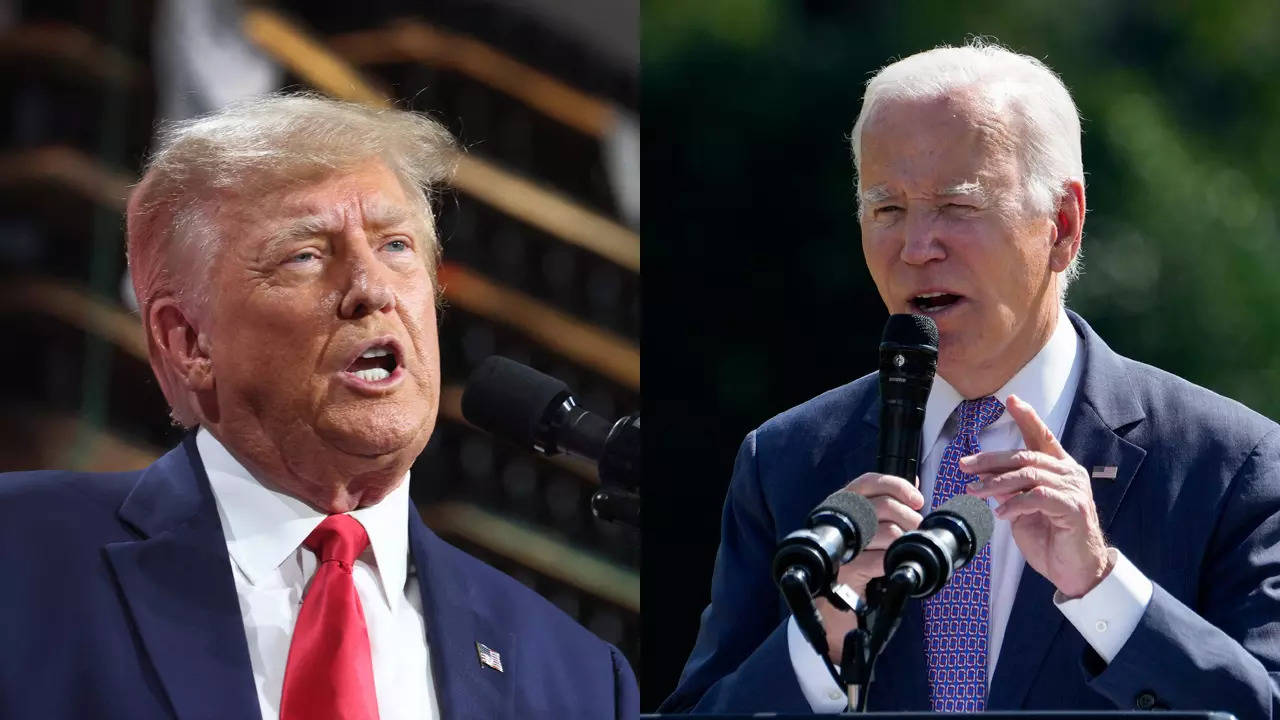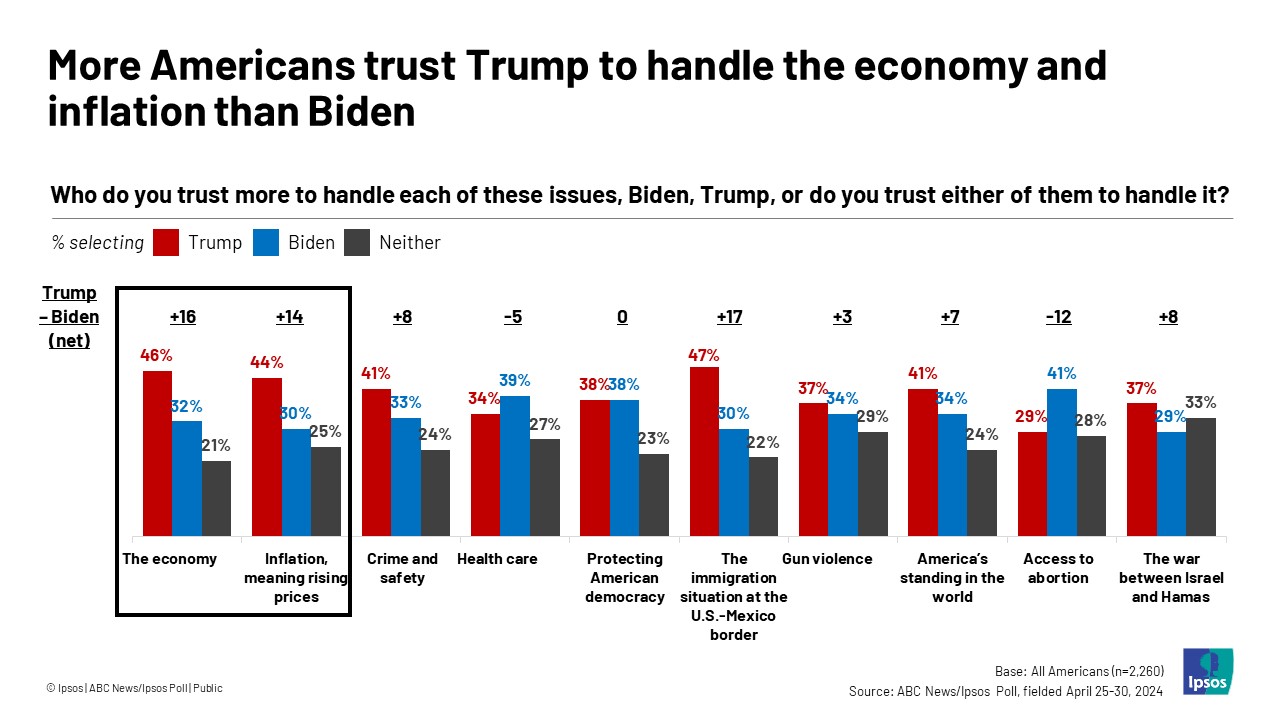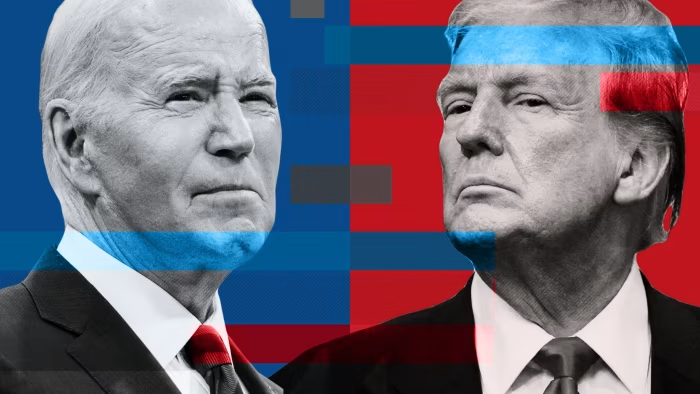In a recent poll, more Americans expressed trust in former President Trump’s handling of the economy and inflation compared to President Biden. The survey highlighted the significance of economic issues, with a majority of respondents considering them pivotal in the upcoming presidential election. An overwhelming 88 percent of Americans cited the economy as a crucial factor in their voting decisions, closely followed by inflation, which 85 percent deemed important.

Trust in Handling Economic Issues
When it comes to trust in managing the economy, 46 percent of surveyed Americans indicated confidence in Trump, whereas only 32 percent expressed the same sentiment for Biden. Additionally, 21 percent of respondents stated they trusted neither presidential candidate on economic matters. Similarly, Trump garnered more trust in handling inflation, with 44 percent of respondents placing their faith in him compared to Biden’s 30 percent. Another 25 percent expressed a lack of trust in both candidates regarding inflation.
Financial Well-being Under Biden’s Presidency
The poll also delved into Americans’ perceptions of their financial status since Biden assumed office. Forty-three percent of respondents reported feeling less financially secure since Biden’s inauguration, while 40 percent claimed their situation remained unchanged. Conversely, 16 percent stated they were better off financially under Biden’s presidency.
Hypothetical Match-Up Between Biden and Trump
In a hypothetical head-to-head scenario between Biden and Trump, the race appeared to remain closely contested. Among all adults surveyed, Trump garnered 46 percent support, while Biden secured 44 percent. However, among registered voters, Biden held a slight lead with 46 percent support compared to Trump’s 45 percent. This lead widened slightly among likely voters, with Biden receiving 49 percent support and Trump trailing at 45 percent.
Methodology and Margin of Error
The ABC News/Ipsos poll, conducted online among 2,260 adults from April 25 to April 30, provided insights into American sentiments regarding economic issues and presidential preferences. The survey carries a margin of sampling error of 2 percentage points, indicating a relatively high level of accuracy in reflecting the views of the broader population.

The findings underscore the enduring significance of economic factors in shaping public opinion and influencing electoral outcomes. As the nation prepares for future elections, the handling of economic policies and the candidates’ track records in addressing financial concerns are likely to remain pivotal considerations for voters.
